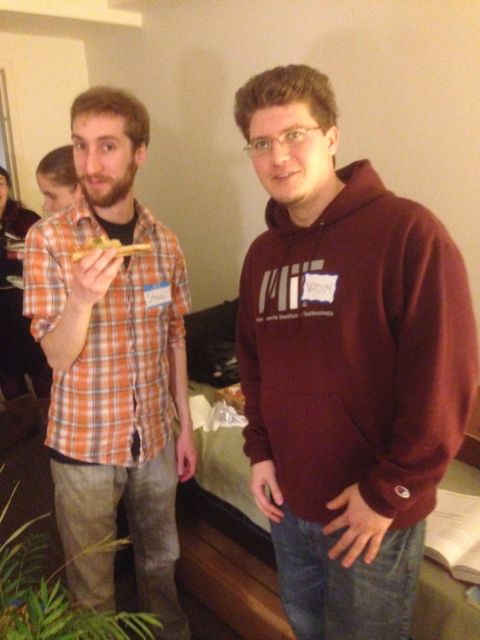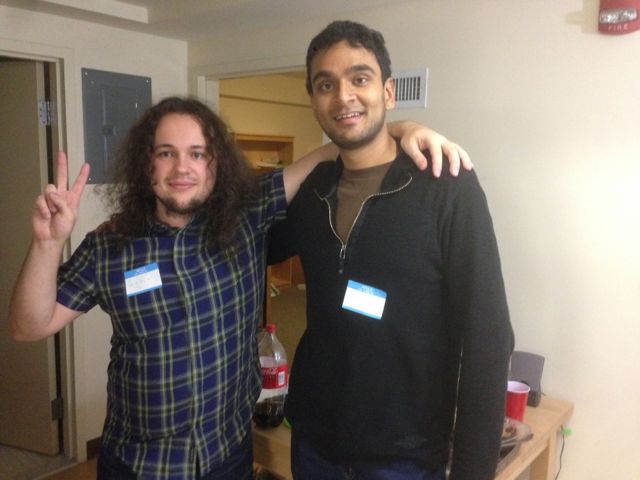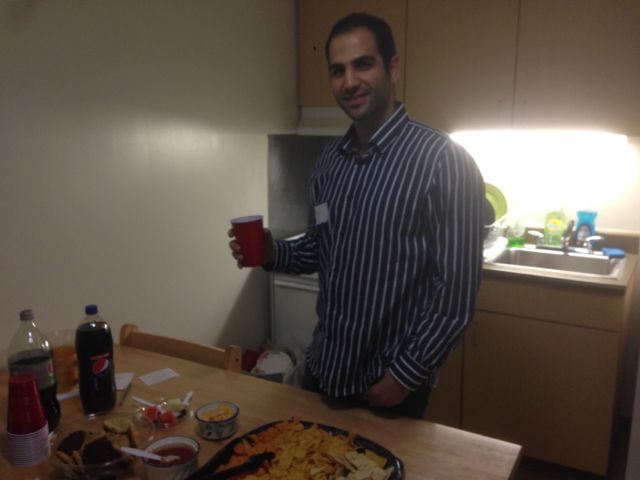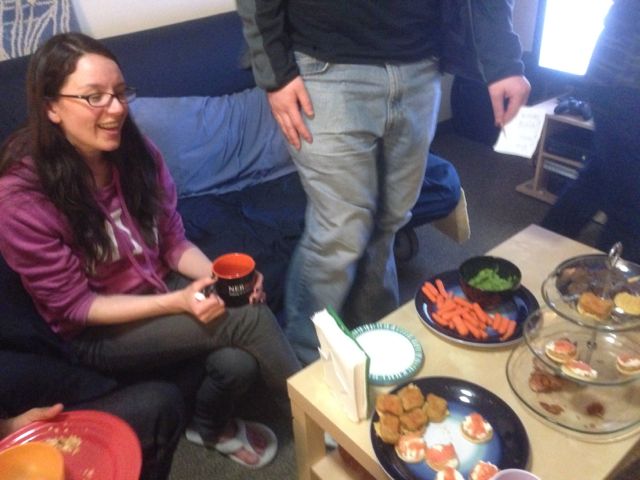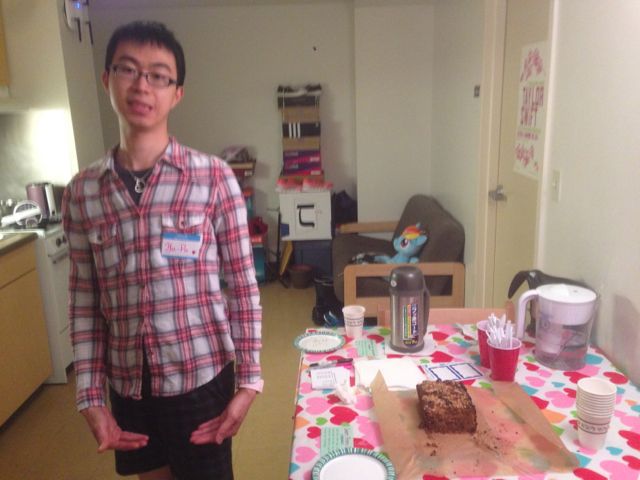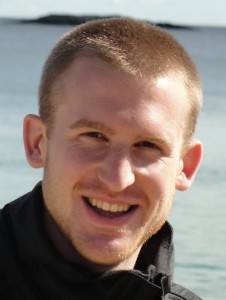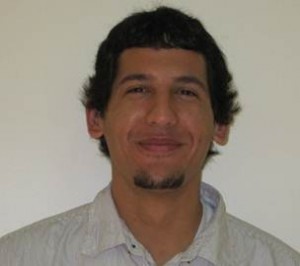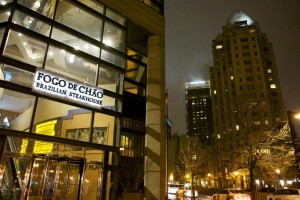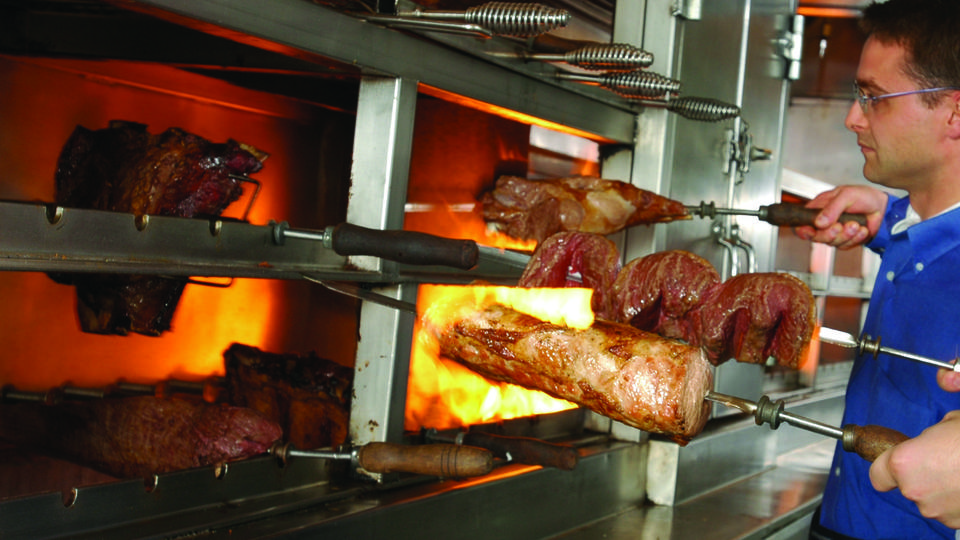
Hunter Zhao, S-P resident
Hello S-P! My name is Hunter, I’m your newsletter chair of 2014-2015. One of the visions I have for this year’s newsletters is to incorporate contributions from SP residents that are artistic in nature. Having spoken with several leaders at S-P, I’ve been encouraged to share with you a chapter from my novel that is currently in the workings. Feel free to comment and offer any suggestions! Also, if you would like to share some of your own artistic compositions (doesn’t have to be writing!), please contact me at: sp-newsletter-chair@mit.edu.
I hope you enjoy my writing!
Prologue
It was almost midnight. The thick, red curtains rippled as wind carried the scent of the city into the room. Dimly lit but well-defined, the living quarter exuded an elegance rarely found amidst the streets fifty stories below. A man stood at the entrance to the balcony, facing the outside.
“That is all I have to report, Your Reverence.”
“Your observations are consistent with those of other Inspectors.” A gentle, feminine voice replied. “You have done well, but I request that you stay here a little longer.”
“Shall I continue with the investigation?”
“That won’t be necessary. We have all the information we need. I want you to keep an eye on the Valentines.”
The man bowed his head. “Please enlighten me.”
“I found someone who possesses the Gift. His intervention might help us avert the war.”
“Your wish is my command.”
“And one more thing, Eli,” she chuckled, “you don’t have to be so stern around me.”
“Your wisdom is the highest, Your Reverence. It is my honor to serve.” Eli replied.
Chapter 1 – May
“Father, you know very well it’s going to work as they say. Why do you insist on opposing the resolution?” Steven shoved past the doors to the seemingly empty conference hall. Anguished footsteps echoed as he stormed across the glazed atrium. “Why are you so hung up on petty politics when you can prevent millions from losing their homes?”
“Steven, I was expecting you!” A cheerful voice replied. “So you managed to catch our negotiations after all.”
A man in his late 50’s emerged from behind the podium. Tall and well kept, gray hair, brown eyes, sturdy posture, suit and tie. Unfazed by the young man’s attitude, he continued to collect papers and tuck them away in his leather folder. Facing him were three levels of uniformly themed desks and chairs, each embodying a carpentry that spelt art instead of practicality. The furniture arrangement curved around the central podium and formed concentric arcs. Overhead, a chandelier immersed the room in exquisite class.
“You are stubborn and cannot be reasoned with!” Steven barked, his voice cracking midway through the sentence.
“Watch your mouth, young man.” A hint of annoyance smeared across the middle-aged man’s face. “This is hardly the way to speak to your father.”
“You had me come all the way here just so I could watch you defend your pride before a bunch of fools!”
“Fools? I thought you admired these brilliant minds.” The father sneered.
“They were foolish enough to waste their time with YOU!”
The father’s head snapped up and locked onto the approaching figure. He took a sharp breath, ready to unleash a torrent of anger, but not a single word came out. He had long exhausted everything he could say. Even if he hadn’t, he knew it would be counterproductive in reconciling their relationship if he were to deliver anything on impulse. Slowly, he straightened himself and looked away.
“Steven… you know that things are not always so simple.” A shade of weariness dawned on his face. “You’re right. I can save those people today. But with every compromise we make, we back away farther from our stance. If we continue to concede to their advances, our independence will be lost.”
“So you deem the publicity of this organization more valuable than human lives?!” The young man slashed back, unrelenting.
The father was silent.
Steven halted his advance towards the podium. Gazing defiantly at his father, he swallowed back the words he had prepared for what the man might have said. His vision blurred as tears flooded into the chambers of his eyes.
“The pursuit of an ideal always entails sacrifice.” The father muttered quietly. The man who enveloped the whole atrium with energy just a few seconds ago now appeared tired and beaten. He inserted the last of his documents into the folder and tucked it under his arm. With a loud sigh, he stepped around the podium and headed towards the door. As he walked by Steven, he rested his hand briefly on the young man’s shoulder. Steven stood motionless, still glaring at the now absent figure behind the podium. Seconds passed like hours, until a voice from the doorway suddenly shook him, “The reception has been moved three floors down. They said it’s drizzling up on the deck.”
The father exited the room.
Like all other conferences regularly held there, an extravagant reception always followed afterwards. But Steven was in no mood to socialize. He only came because his father had insisted on it more than a dozen times. Just minutes ago, representatives from nations around the world gathered in this auditorium. They discussed and voted on the proposition to deploy a technology that sought to alter climate on the global scale. Steven spectated from an adjacent room. Although the proposal contained much more technical detail than the untrained ear would like to hear, he understood everything and found the mechanism behind the concept quite fascinating. The technology was the first of its kind and indeed carried potentially unforeseen risks, but he was confident that it would function as designed. After all, aside from a few vocal outliers, accredited academics from around the world independently verified and acknowledged the idea. If implemented, the calamitous weather patterns and rapid sea-level rise could be abated. Inaction, however, would lead to the emergence of millions of climate refugees. Father chose the latter.
Although Steven hated to admit it, he had been hopeful for this discussion in particular. He thought that maybe his father would be more reasonable. Maybe he would signal a new course of action for his political compatriots. Maybe he would choose saving lives over saving face. Steven clenched his fists. He loathed his father’s twisted ideals and strategically fabricated demeanor. It was why he didn’t want to come in the first place. Politicians disgusted him.
Steven exited the room. Offices lined neatly along the corridor. Paintings decorated the space between doors. Steven didn’t care for their content, but he liked their symmetric arrangement. Consistency was beautiful. He turned around the corner towards the elevators and saw no one else in the lobby. Everyone must have already left for the reception.
The elevator arrived. It had been merely five seconds or so since Steven called it. It is only fitting to adorn such a magnificent high-rise with the most efficient personnel transportation network, he mused. There were multiple sensors in each car. When a car was empty, it would shoot towards its destination floor at breakneck speed. But when a car was occupied, it would limit its acceleration to ensure the safety of its occupants. Cameras monitored passenger traffic on each floor; the information is used to optimize the standby position of each car. Steven took pride in this knowledge. He scoffed at the irony that such an elegant technology would be adopted by people who rallied against its inventors. As he stepped in, the scent of appetizers and wine saturated his nose. He pushed 58, the topmost floor. Floor 58 was where the wings of the skyscraper converged. The whole floor was just one enormous, circular lobby blanketed with marble and buttressed with pillars. The space was designed specifically for hosting receptions, and contained no interior walls other than for bathrooms and elevator shafts. The hall also harbored a fountain underneath a circular shaped cutout from the ceiling. A spiral staircase led up to the roof, which served as an outdoors deck. Steven wanted to spend some time alone. Because of the rain, no one should be on the deck right now. He proceeded to scan his badge for authorization. The elevator doors slid shut.
Floor 58. The room was well-lit and air conditioned, albeit devoid of occupants. Steven let out a sigh of relief. The sound of water splashing in the fountain muffled the raindrops beating against the deck. A few small puddles had formed on the ground. He stuck his hands into his pockets and made his way towards the spiral staircase. The misty drizzle would probably ruin his expensive suit if he stayed for too long, but he wasn’t concerned. He could just pick out another set when he got home. It was one of the few perks he enjoyed about being a Valentine. He couldn’t recall the last time money was a problem.
Steven strolled to the top of the stairs. A slew of pink narrowly missed his face. He lost his foothold and fell backwards. His hand reflexively grabbed onto the handrail as he tried to regain his balance. Still shocked, he looked up and caught sight of a female figure fifteen feet away, swerving about in a dance. She wore a white summer dress that ended just above her knees. She seemed about a head shorter than him, and had a rather slender frame. Steven expected an exchange of apologies, but the girl was still darting and turning and bending and swaying with unparalleled finesse as though she hadn’t noticed him at all.
“Hey!” Steven called out.
No response.
“Excuse me!”
Still no response.
Steven grew a little annoyed. He wasn’t used to being ignored. Nevertheless, he decided to watch her in silence for a while, observing her every maneuver. Her fluidic movements were beyond enchanting; the longer he waited, the less he wanted to disturb her. He had to get her attention somehow, but his feet were glued to the deck. This might have been the most beautiful dance he had ever seen.
“Why’d you get so quiet?” A plummy voice broke his concentration. “I thought you were trying to get my attention?”
“W-Wha…” stuttered Steven as he recollected his thoughts. “Hi.”
“And don’t you think it’s a little creepy to be staring at me all this time?” The girl retracted her limbs from a pose.
“No, wait, I wasn’t…”
She rested her hands on her hips and smirked. “You aren’t so good with the ladies are you?”
Steven hadn’t been able to see her face clearly until now. She had an oval-shaped face with unobtrusive cheekbones and round chin. Her hair was a tide of pink draped over her shoulders. Long lashes lined the lids of her dark green eyes, and a small nose sat delightfully above her lips. The tint of her lipstick mirrored the color of her hair. Judging from her features, Steven could tell that she was no more than twenty.
“I didn’t mean to stare at you.” Steven folded his arms awkwardly in attempt to retain some dignity. “I just thought it was unusual for someone to be up here at this hour, and dancing.”
The girl trotted towards him and stopped a few inches too close for his comfort. She leaned in, her hands clasped behind her back. Her eyes narrowed as she examined him. The pressure made Steven shift his eyes away.
“You, mister,” she said in a matter-of-fact manner, “almost ran into me when you came upstairs. I think you owe me an apology.”
“You can’t be serious.” Steven’s eyes widened. “I almost fell down the stairs because of you, and I’m fairly sure you’re not supposed to be up here.”
The girl replied, “well neither are you.”
“How did you get here?” asked Steven.
“The same way you did.”
A frustrated look came upon Steven’s face. They couldn’t have allowed such an improper visitor into the establishment, he thought. He knew all the familiar faces that frequented this place. Even if he didn’t recognize someone, he would be able to tell if she belonged here by her conduct and attire. He couldn’t recall ever seeing this girl before, and dancing on the deck was certainly a first. Perhaps she was related to someone that worked here? But if so, why wouldn’t she be at the reception?
“My name is Steven.” He said. He thought that he should first identify himself if he wanted her to reciprocate. “My father is Joseph. Joseph Valentine. I attended a conference here today, so I’m a guest. I came up because I needed some air.” He muttered sheepishly.
“Oooh! Is our poor little boy upset?” She taunted.
“You should have heard of him. My father I mean.” Steven pressed on. “Who are you here with?”
“With you of course, who else?” She replied.
Steven lifted his hands in an irritated gesture and turned aside. She’s not taking him seriously at all. He would have been far more respected in a conversation with anyone else, let alone after revealing his father’s identity. Maybe he should…
“Dance with me!” The girl blurted. She took a step forward and took hold of his wrist. The fragrance of her perfume shot up his nose. But before he could pull away, she placed his hand behind her waist, wrapped her arm around his neck and railed herself in.
Steven shoved her back.
“I don’t think this is appropriate,” he said.
“Now, now,” the girl pinched her eyebrows into a seductive frown, “don’t be shy, life is short!”
“Look, my day’s been rough enough. The last thing I need right now is harassment from you.”
“Well… would it be,” the girl held up two fingers on either side of her head and squeezed them, “more appropriate… if you continued to stare at me while I danced?”
“Why are you dancing here, out of all places, and alone?”
“Because I love dancing.”
“No, I mean, why the roof in parti-, never mind.” Steven dismissed the question with his hand. He knew he wasn’t getting a straight answer out of her.
“It’s nice up here,” she replied, “the view… the air… the drizzle, it makes me feel alive.”
“But isn’t dancing usually accompanied by some kind of music?” Steven asked, curiosity triumphing over his surprise that she actually gave him a straight answer.
“Of course,” the girl responded, her face beaming. “Can you feel it, the rhythm of your heartbeat? Can you hear the sound of water splashing? Can you taste the raindrops falling on your lips, smell the fragrance of summer air, and see the veins of the city below? This is music, the music of life!”
Steven smiled. Whether it was the absurdity of her response or the silliness of the situation, the bitterness with his father dissolved a little. He must admit that her joy was quite contagious.
“You get what I mean right?” Her emerald pupils glistened. “See, you’re smiling.”
“What’s your name?” Steven asked.
“Don’t get too friendly with me now,” she said, “I still haven’t heard that apology from you.”
“Okay, fine,” Steven whispered. “I’m sorry.”
“I can’t hear you!” The girl put a hand up to her ear.
“I’m sorry I almost ran into you.”
“What was that? This music is too loud!”
Steven slapped her arm playfully while she dodged backwards, laughing.
“You’re a great dancer, do you do this for a living?”
“Sometimes. I dance because I feel like it, whether on stage or just now.”
“So how long have you danced?” asked Steven. He was becoming more and more intrigued with this strange girl.
“For as long as I can remember. I studied dance at the Juilliard School at one point,” she replied. A streak of pride leaked through her eyes.
“Then you must be on summer break right now.”
Cheerfulness faded from the girl’s face. She looked down in order to conceal her sudden change of expression.
“No. I dropped out of school,” she said.
Steven wasn’t sure how to respond. In one part he felt responsible for ruining the atmosphere, in another he wanted to find out why such a talented girl would drop out of school. He figured that since she was so enthusiastic about dance, she must be just as sensitive when it came to the topic. It was probably better to just leave it alone.
“Voluntarily.” She added hastily, noticing Steven’s ambivalence.
“Did you find a better place to dance?” asked Steven, still puzzled. For someone with a more modest family background, the cost of tuition might have been a natural guess. That thought would never cross Steven’s mind, of course.
“No. Health problems.”
“Ah, that’s unfortunate. I’m sorry to hear that,” Steven said, with a lower pitch than before.
“I don’t need your pity,” the girl retorted. “It gave new meaning to my life.”
She walked to the outer edge of the deck by the windshield, folded her arms and leaned on the railing. The bustling city below seemed farther away than the dark clouds above. She stared into the glass, unsure whether she was looking for her own reflection or a particular raindrop. In a way, they had a lot in common.
Steven walked up next to her. He hadn’t planned on chatting with anyone, but the girl’s presence distracted him from thoughts of his father, which was what he came to accomplish anyway, so he didn’t mind.
“Did you know that Boston is an unplanned city?” said Steven, hoping that a change of topic would lighten up the mood.
“What’s the difference?” she asked.
“Planned cities are built according to a blueprint designed by an architect. They are complete cities from the start, and their futures have been conceived before they spring up from the ground,” explained Steven. “An unplanned city is what a city becomes after the planners leave.”
Steven pointed towards a bridge across Charles River. “Follow Mass. Ave. and you’ll see that it doesn’t have a consistent orientation throughout its span. In fact, that goes for most of the major streets here. Sometimes you can’t even tell one block from the next because everything’s so jumbo’d up.”
The girl’s head followed his finger as he went on. “And the streets are rarely numbered. In L.A. on the other hand, almost every street has a number, and the city practically sits on a grid.”
“Where did Boston’s planners go?” asked the girl.
“Well this city’s about as old as America itself, so it’s probably safe to assume that the planning’s been passed down across several generations. Inhabitants, entrepreneurs, developers, immigrants, they’ve all been shaping the city.”
“Can’t they just rebuild sections of the city to make moving around a little easier?”
“It’s not that simple, especially not with a historical city like Boston. In fact, the subway network had to tunnel around Harvard when they extended it because George Washington permanently exempted the institute from eminent domain laws.”
“That seems rather… selfish,” said the girl with raised eyebrows.
“At least they’re doing some good things,” said Steven. “I’ve heard that the Harvard Corporation has to meet certain annual returns on investment just to break even with all the financial aid they give out every year.”
He turned to face the girl. “Outside of their business school, of course,” he wisecracked.
“Do you go to Harvard?” she asked.
“No. I attend Zenith, one of the Solomon Academies.”
“So you’re one of those,” she mocked.
“Hey, I know what you’re thinking. I fought long and hard to get there, against my father’s will on top of it all.”
“As long as you’re happy, I guess.” She added. “You think it’s worth all the white hair on your head?”
“Very funny.” Steven rolled his eyes. He indeed had white hair. Not few, not many, but all of it. It wasn’t the result of an accident or stress from work. He was born with it, along with a complementary package of lifelong ridicule. He didn’t mind at all, though. It wasn’t so much of a handicap as an eccentricity. However, coupled with his analytical nature and stellar intellect, it quickly became the catalyst of an overused joke.
“Never thought I’d be dancing in front of a creepy math nerd when I woke up this morning,” she joked.
“It’s an integrated education that actually produces useful people for society,” said Steven. “At least do some research before you start oozing ignorance.”
“Okay, so tell me, what exactly do you study there that makes you…” the girl quoted again with her fingers, “useful for society?”
“Lots of things, pretty much all the disciplines under the experimental sciences. You also have the option to pursue theoretical fields like mathematics and certain branches of physics, or delve into applied areas like software development, business, or engineering. There really isn’t a clear divide between classes when the professors outnumber the students.”
“And… you’re an expert in all of them?” the girl seemed incredulous.
“No, of course not,” replied Steven, “I do know a bit of everything, but I like space engineering and applied mathematics the most. Because after a while, you start to realize that everything can be modeled under some abstract framework.”
“See? I was right, a math nerd.”
“If you insist.” Steven decided to play along. “But you left out the space part.”
“Right, and that’s supposed to make you useful?”
“Come on, this stuff took us to the moon!”
“To a piece of white rock really far away.” She contended facetiously.
“A dark grey collection of rocks, mind you.” Steven replied in kind. “The only thing white over there is probably the flag we planted fifty years ago. It doesn’t take long for the radiation to bleach the paint off the fabric.”
“Hmm, like how Michael Jackson turned white because he did too many moonwalks?”
Steven laughed. He was beginning to grow fond of this girl.
“Oh and by the way, you can call me May,” she said.





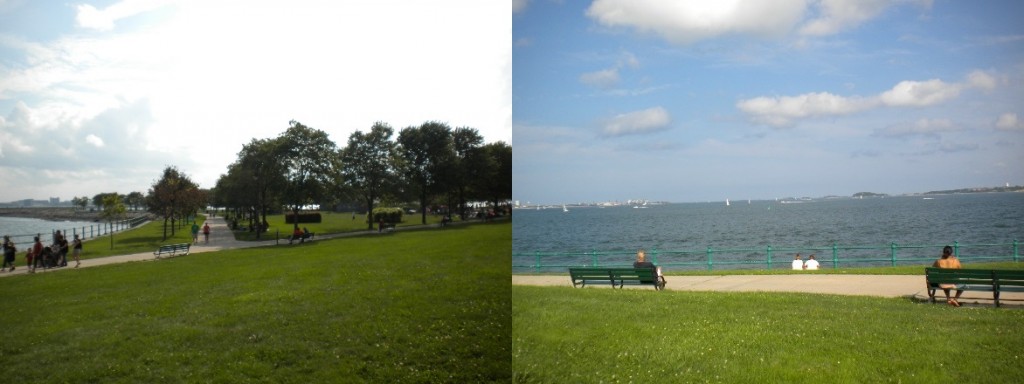
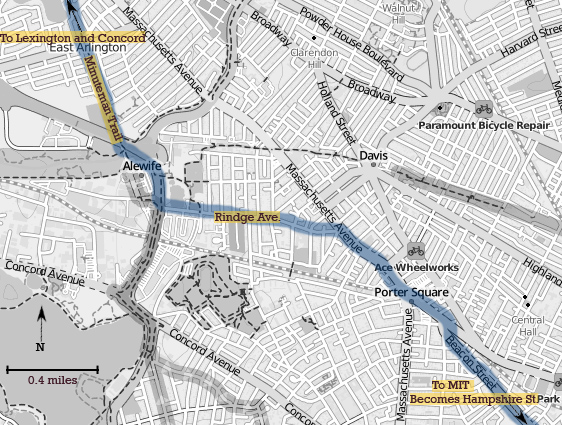
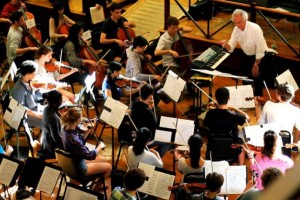
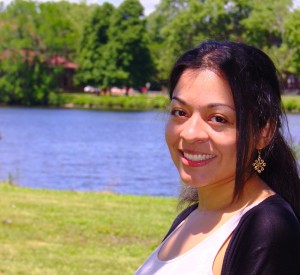
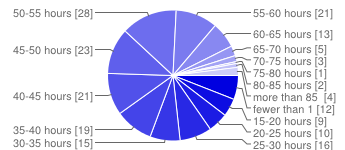
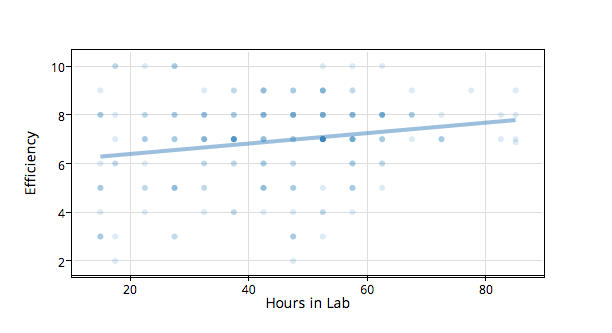

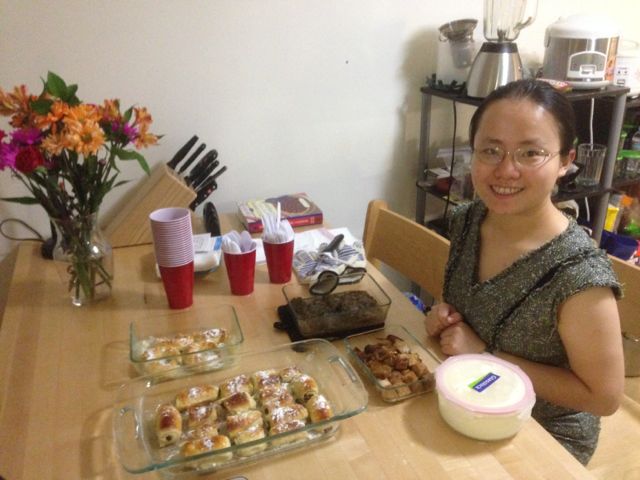
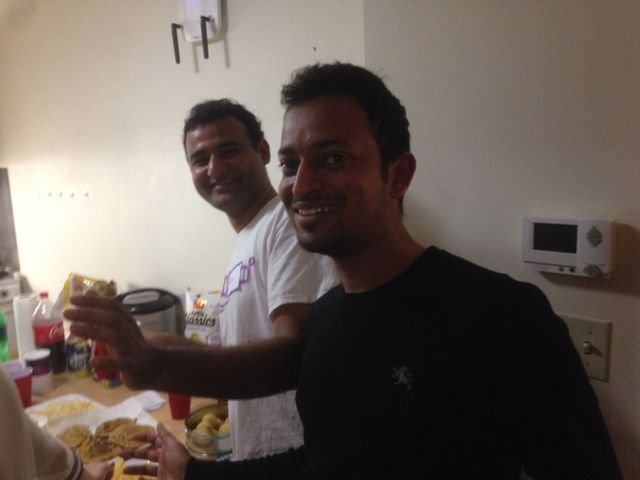

![Mariana canapés, hummus, tabbouleh salad, tomato bites "I got this book [on Lebanese cuisine] for Christmas."](http://s-p.mit.edu/spnewsletter/wp-content/uploads/2014/05/IMG_2541.jpg)
